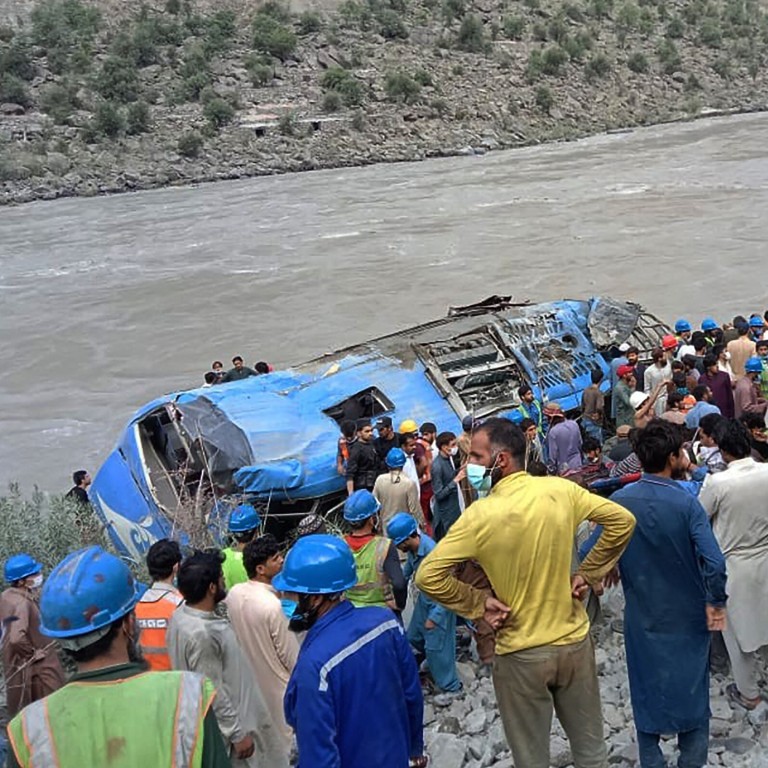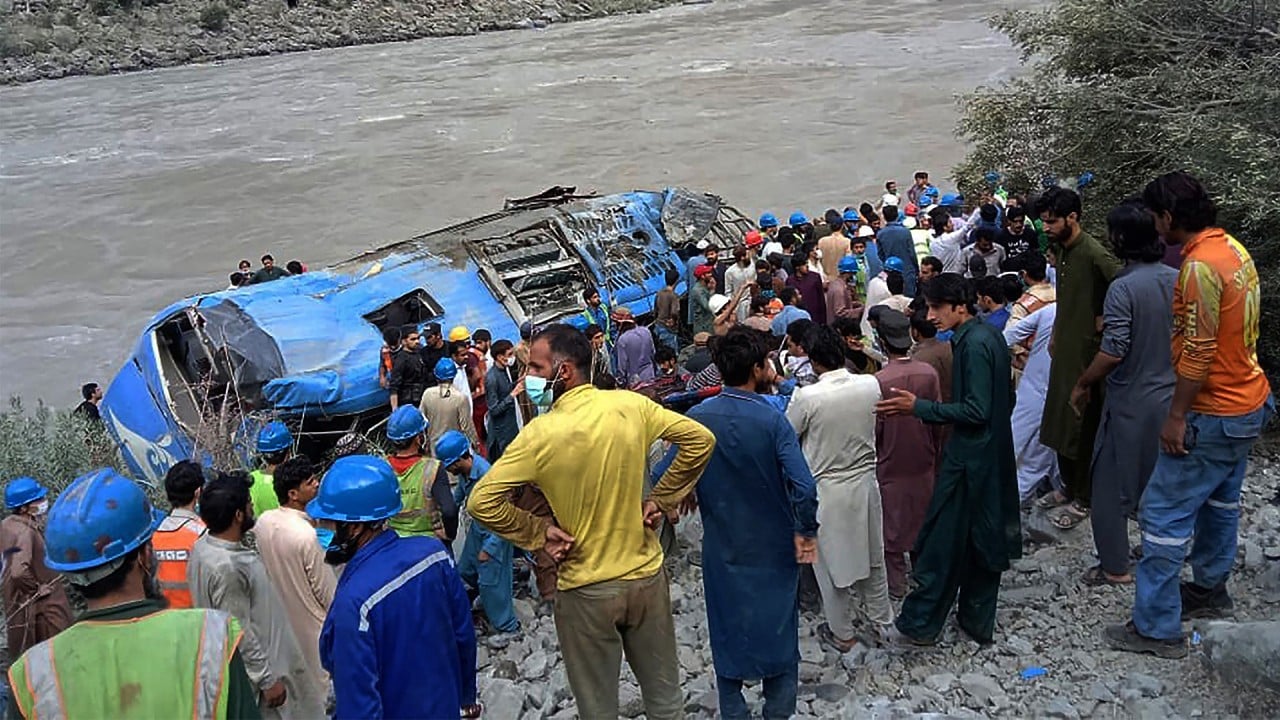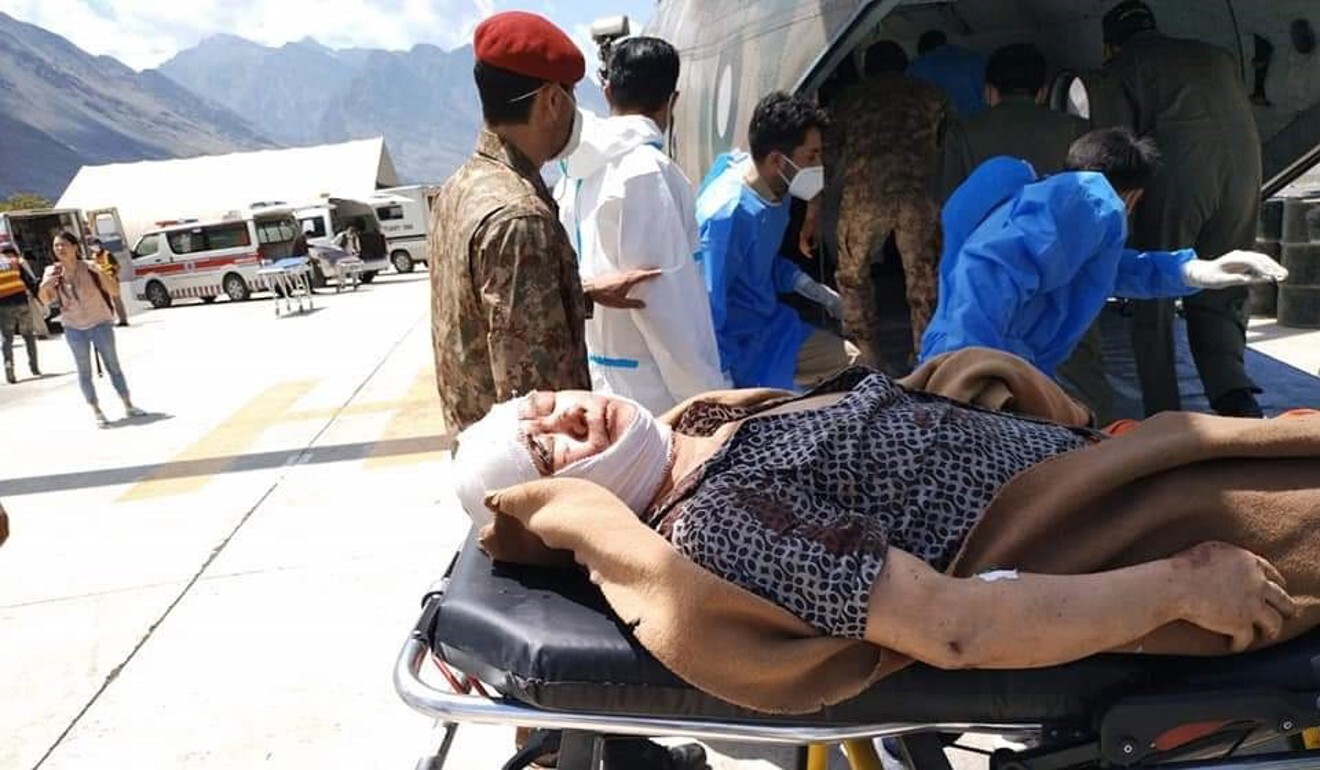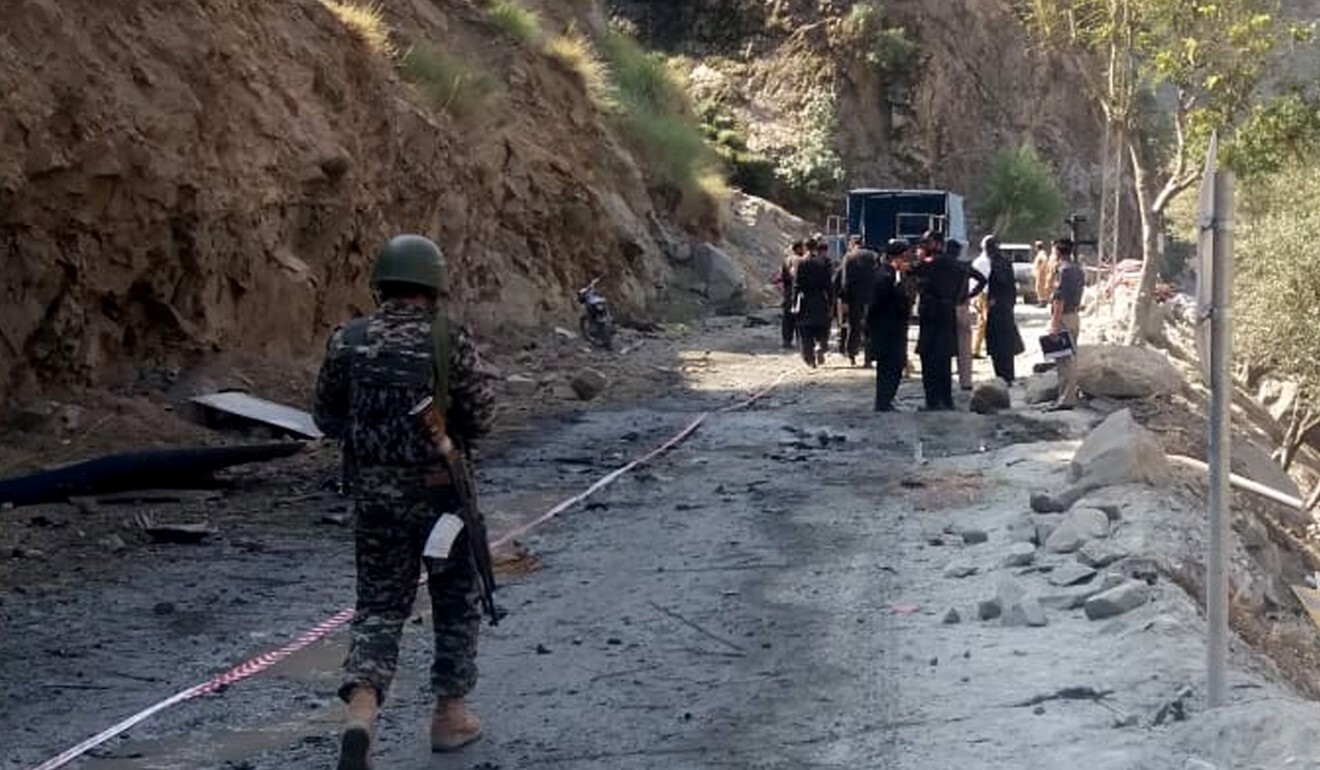
Chinese firms’ security in Pakistan nowhere near good enough, say analysts
- After bus blast killed 9 from China, companies urged to invest more in protection
- Beijing should also step up to help neighbouring government look after Chinese citizens
They also said Beijing should offer equipment and training to its neighbour to try to better protect China’s citizens.
In all, 13 people were killed and dozens were wounded in the blast.

01:51
Nine Chinese nationals among 13 killed in Pakistan bus blast
There have been previous attacks with links to Chinese nationals in the country, including a deadly blast in April at a luxury hotel. China’s ambassador was staying there but not present when a car bomb exploded, killing four residents.
But sending an investigative team overseas was unprecedented, said an analyst.
“China has never sent such an investigation team overseas before. It shows it attaches importance to this case,” said Lu Wei, a security expert at ZhongAnTeWei, a firm involved in the security of Chinese companies operating in Pakistan.
Pakistan bus blast: why is anti-China terrorism suspected?
Lu said there were four layers of protection for Chinese nationals in Pakistan.
The first involved Pakistan’s military personnel and police while the second was a 15,000-strong security force of Pakistanis with the job of protecting 7,000 Chinese citizens.
The third layer was made up of private security companies set up by other nations or in joint ventures with Chinese companies. Guards – including retired soldiers – hired by Chinese firms in Pakistan were the fourth layer, he said.

Li Wei, a counterterrorism expert with the China Institutes of Contemporary International Relations in Beijing, said there were not enough professionals who understood the risks.
“There is a lack of talent in Chinese companies investing in these nations who fully understand the security threats, do proper planning and communicate with local police and the military,” Li said.
Seven Chinese government agencies, including the ministries of commerce, foreign affairs, and public security, jointly released a document in 2010 on the safety of Chinese nationals and companies abroad. However, the measures it listed were not mandatory.
“There is no requirement from the Chinese government on how much money companies should spend on security. But some nations demand companies spend 3 to 12 per cent of their investment money on security,” Li said.

“Companies may think that this will reduce profits,” he added. “But when attacks happen it is too late to make additional security investments.”
Long Xingchun, president of the Chengdu Institute of World Affairs, a Sichuan-based think tank, said there were loopholes in security in Pakistan and China must provide more backup.
“The Chinese government should provide more equipment and training to Pakistan, like surveillance technology,” he said.
Long said helping the nation’s government was crucial because security companies and guards were not armed with guns and did not have law enforcement powers.
Guards – usually retired soldiers – could be armed if they carried out rescue missions at sea, but this did not apply on land, Long said.
“China’s surveillance technology is more advanced and can help, including on roads,” he said. “The Pakistani military’s capabilities and the level of equipment may also be limited. In the long run, strengthening prevention is needed. But it is difficult sometimes to detect bombs or totally stop attacks, especially on mountain ranges. We can only rely on the improvement of the overall security of the region.”
Li said he expected the risks facing Chinese companies would become more prominent, but added that some domestic security companies had stepped up training for staff involved in overseas protection.
“It is impossible for Chinese companies to achieve security based on their own abilities. They must have secure cooperation. This is the way to ensure their own security.”


